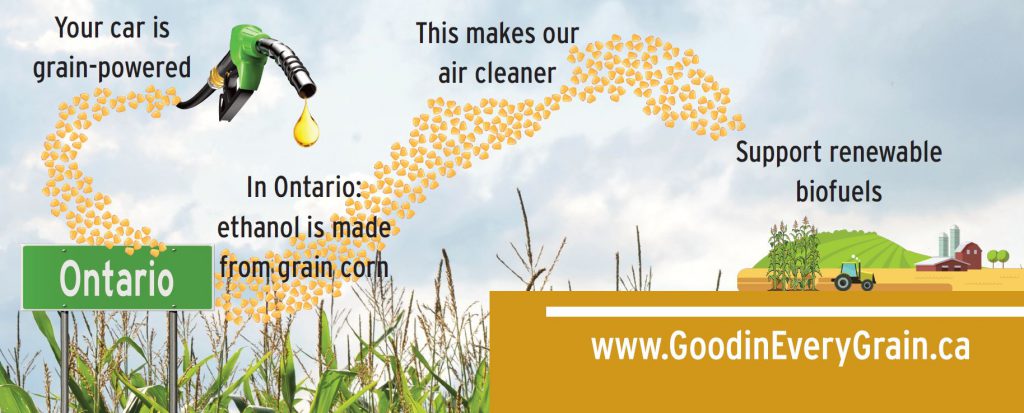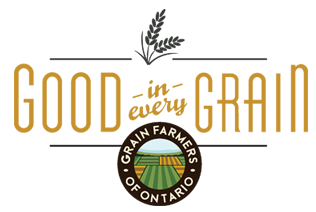What does using ethanol or biofuel mean for me, and what does it mean for the environment?

Ethanol is fuel made by distilling grains. In the United States and Canada, ethanol is made from corn and biodiesel is made from soybean oil (usually in the form of used cooking oil). In other parts of the world, ethanol is produced with sugarcane, rapeseed oil, animal fat, and canola oil.
Ethanol is frequently used to supplement regular gasoline, and almost all gasoline in Canada contains some ethanol. This has reduced gasoline prices (relative to what they would have been without ethanol supply) by an average of $0.06-0.10 per litre in US studies. Ethanol now represents five per cent of the world’s gasoline supply. In 2010, the global production of fuel ethanol and biodiesel amounted to about 85 and 15 billion litres, respectively. In that year, Canada was responsible for 1.83 billion litres of ethanol and 110 million of litres biodiesel–and for the United States, 54 and 1.5 billion, respectively.
Ethanol production is more efficient and environmentally friendly in Ontario and the rest of Canada than it generally is elsewhere, when considering the cost of inputs used to grow corn, transportation costs, and production. Compared to the United States, Ontario corn ethanol production uses less synthetic nitrogen fertilizer, less lime, and little irrigation; all Canadian ethanol plants also use natural gas rather than coal as their energy supply.
According to recent studies, the substitution of ethanol into 10 per cent blends with gasoline results in a 62 per cent reduction in net greenhouse gas emissions on a caloric basis adjusted for differences between the caloric energy content of ethanol and gasoline. The 62 per cent reduction means an annual reduction of 2.3 million tonnes of GHG emissions or equivalent to the annual emissions from 440,000 cars. About two-thirds of this is in Ontario.
To learn more about ethanol and biofuel production in Canada, visit Grain Farmers of Ontario’s Food vs. Fuel page.
